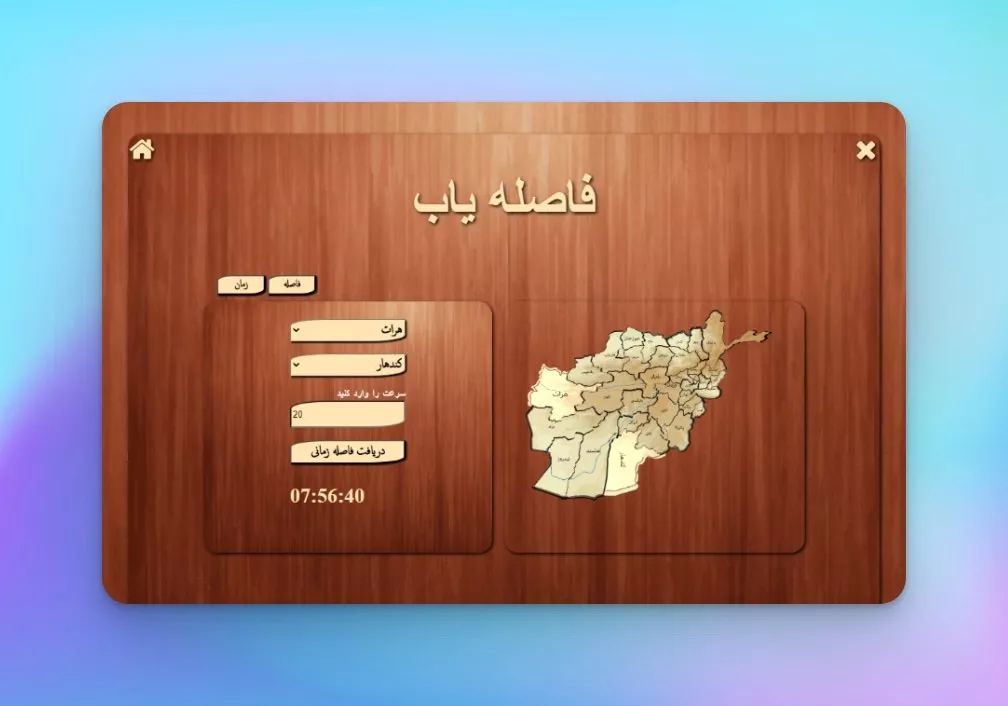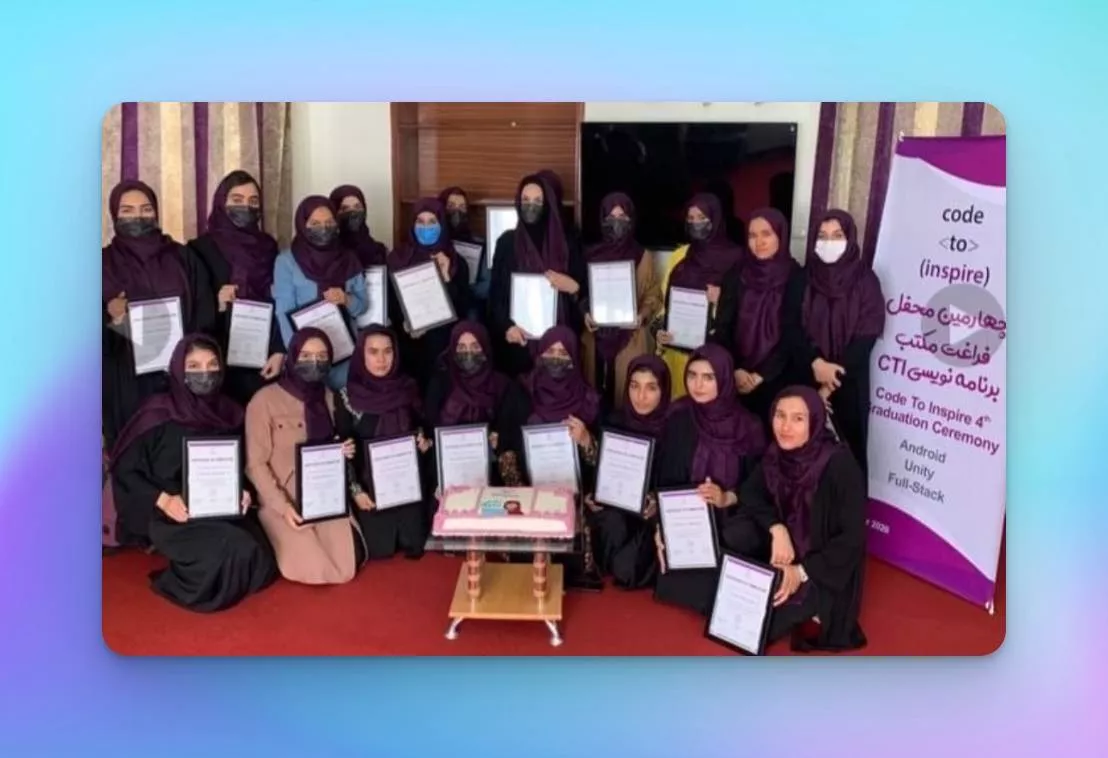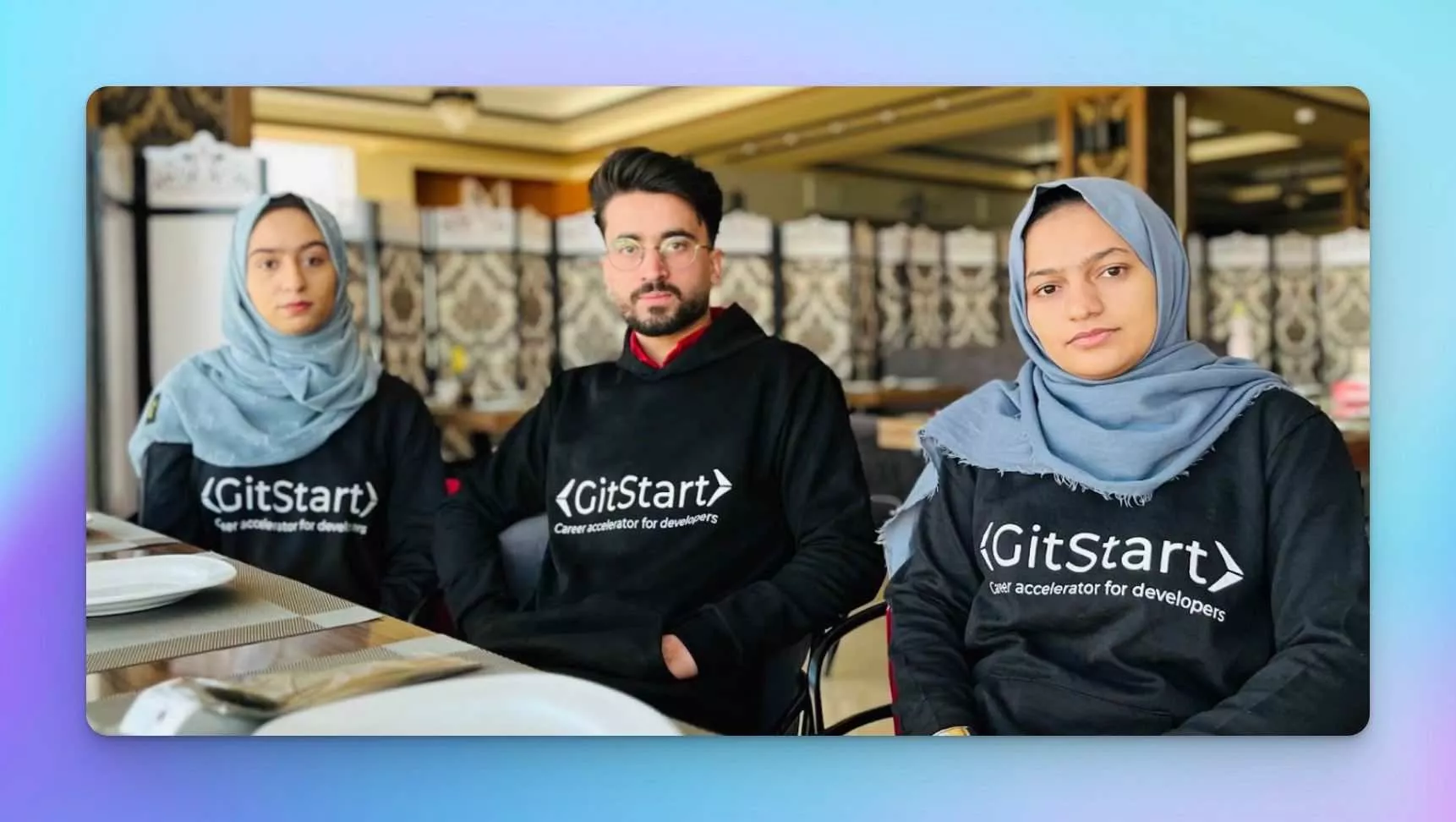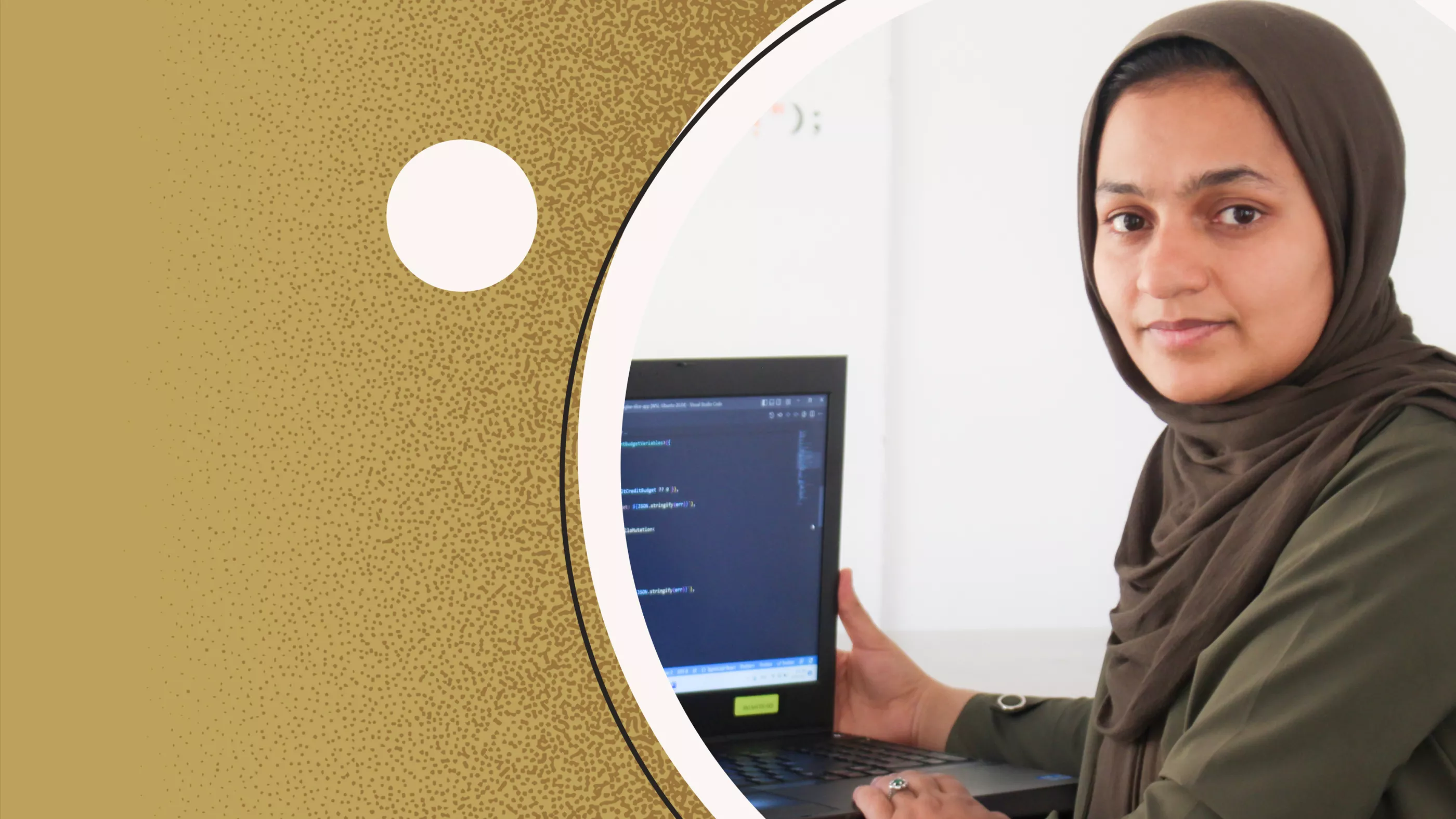“You can either be a doctor, a teacher, or stay at home”
In Afghanistan, it is not common for a girl to own a laptop. I really wanted one so I sewed clothes with my mother until I saved enough for a basic i3 laptop with 2GB RAM. Most people around me didn’t understand why this would excite a 14 years old girl. In fact, most didn’t know the difference between a laptop and an MP3 player. What’s for certain is none of us knew this purchase would set off a life-changing domino effect for both me and my family.
Getting internet at home turned out to be too expensive, but I was lucky to find a computer center in my hometown of Herat. Here, I enrolled in the “International Computer Driving License” course. For a girl in Afghanistan, the suggested professions, if any, are either to be a doctor or a teacher, but studying computers was so fascinating I started looking at how to get into university to study computer science.
Sewing in the day, studying at night
In Afghanistan, university admissions requires us to take the national exam of Kankor, which is very difficult, so most people join coaching centers. At this same time, my father, who was the sole breadwinner, had money problems with his shop. This meant I couldn’t afford a coaching center, and that my mother and I had to start working in a tailoring workshop to support the family. This was the toughest period of my life – as I sewed during the day, and stayed up through the night to study with the help of books borrowed from my cousin.
It took me a few seconds to believe it when the admissions letter arrived – I got into the Department of Computer Science! The sheer joy and emotion that overwhelmed me upon receiving this news is something that I will never be able to forget.
Coding To Inspire
At University, I was extremely fortunate to have a professor inform me about Code To Inspire, a training center that provides free programming classes for women. I enrolled with a friend, and loved it. The quality of education and expertise of instructors, particularly that of Mrs. Forough, the President of Code To Inspire, left a lasting impression on me.
One highlight was to join a hackathon – my team built a Javascript application that computes the time of arrival for vehicles across different Afghan cities. We even got recognized by a local media channel!

Back to tailoring and studying with the Covid outbreak
Suddenly, Covid-19 hit and classes moved online. It was a shock because we still had no Internet access at home, and no money to afford it because Covid also affected my father’s shop. The only way out was to resume sewing in a workshop that paid me 30 cents per garment. After a month of non-stop work, my mother and I saved just enough cash to get Internet access during the night hours when the rates were lower – and I was able to keep up with Code to Inspire assignments.

The uphill battle of finding work
After completing my studies at Code to Inspire, I struggled to find a a programming job because there are very few opportunities in Afghanistan and people don’t believe women can code. After months of failed applications, I found a job as a database developer. The company didn’t have enough money to pay me, but it was very motivating to work on real problems.
After this project was over, I went back to searching and found a Shopify website project through my Code To Inspire former teacher. I had finally landed a paid project after all my efforts! Several small gigs of building websites followed. They pay very little, but I was content because getting a job as a programmer in the tech industry is a huge achievement for an Afghan woman.
Finding the perfect fit at GitStart
I was then faced with a period of unemployment due to changes in the government. Having no visibility on when I could find a job made me feel quite hopeless. Several months later, I was saved again by an email from Code To Inspire about a partnership with a company called GitStart, which was exciting because it’d be completely remote.
The selection process was called “hackweek”, which is a week of coding and reviewing code from other people. It was paid, so I could get internet at home, but it was very difficult because I had to understand a completely new codebase to be able to contribute. I really didn’t expect to make it but got accepted!
Growing as a professional software engineer
It is now my fourth month of working as a professional software engineer. My favorite part of work is being able to work remotely because it makes it really difficult for the government to take away my career and my income, which makes me enjoy a stability most women around me don’t have.
Stability also makes a big difference in accelerating learning. It gave me the bandwidth to take on tasks in new technologies like GraphQL, TypeScript, and Next.JS.
In terms of learning, the biggest jump was to go from building projects from scratch to working on existing codebases, and to review code from other developers daily. Both mean I have to actively read ten times more code than before. It’s a bit like going from cooking at home alone versus joining a restaurant cooking team - you learn much faster when you can learn from the good and bad practices of other people.
When it comes to the pay, I earn about five times more than when I was building websites. This was life-changing as I was able to move my family of seven from a two-room apartment to a large house!
Conclusion
In conclusion, I firmly believe that there is no limit to achieving what you want, even in the face of difficult circumstances, such as living as a woman in a country like Afghanistan. The biggest challenge is you can’t want something you don’t know about.
Many people don’t know they’re capable of learning how to code.
Many don’t know some organization will pay you to learn coding by writing code used by tens of thousands of people.
Many don’t even know that girls can earn enough to make their family of 7 move from a small two room flat to a large house.
I started spreading the word locally by becoming an ambassador for the two organizations that helped me, and I already found work for two people!

With your support, I hope to be able to help more people.
Do you know journalists who would find this story worth sharing?
Do you know other paths and resources to become a software engineer?
Do you know other jobs that can be done remotely and where non-native English speakers aren’t at such a big disadvantage?
Message me at wajiha@gitstart.dev!
